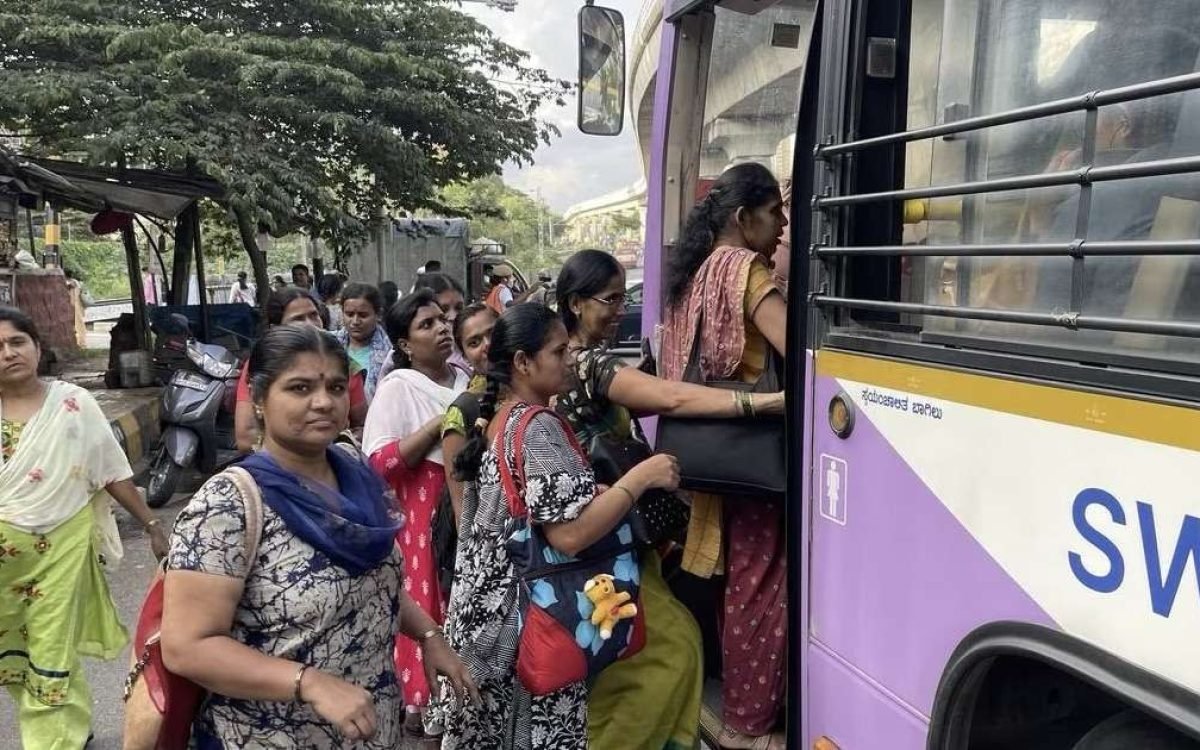“Shakti Scheme’s Impact on Women’s Commute: Mixed Reactions Emerge”
The Shakti Scheme, designed to empower women by providing free travel in State transport buses, has garnered significant attention, but its impact on the behavior of conductors and drivers has sparked diverse reactions among women commuters.
1. Changing Dynamics of Behavior
While the Shakti Scheme received an overwhelming response, women who frequently commute by buses have observed a notable shift in the conductors’ and drivers’ behavior, particularly towards women. The introduction of the scheme seems to have triggered changes in the way women are treated during their bus journeys.
2. New Normal of Rude Behavior
Elderly women, like 67-year-old Minakshi Amma, express concern that the rude behavior becomes a ‘new normal,’ especially during overcrowded bus rides. Despite their age, they are compelled to travel due to necessity, facing unwelcome treatment from transport staff.
3. Working Women’s Dilemma
Working women, such as Fatima Banu, emphasize that women don’t travel unnecessarily and often rely on buses to reach their workplaces. The scheme, while offering free rides, hasn’t necessarily translated into a respectful environment for women during their commutes.
4. Plea for Fare Subsidies
Geeta, a college student, suggests that instead of making rides free, fares could have been subsidized for women, reserving complete freedom for elderly and disabled individuals. This perspective aims to strike a balance between affordability and respectful treatment.
5. Challenges for Students
High school and college students, like Laxmi and her peers, report instances of ridicule and inconvenience during peak hours. The implementation of the scheme seems to have inadvertently affected the experiences of younger commuters, with buses stopping at inconvenient distances and potential delays.
6. State Transport Employees’ Perspective
State transport employees, such as driver Arunkumar, cite challenges arising from the misuse of the scheme. They assert the need for being loud to manage overcrowded buses and ensure passenger safety. However, the scheme has also led to penalties, with 14 conductors and drivers suspended post-implementation.
7. Diverse Opinions Among Women
Not all women share the same opinion, with some acknowledging the challenges faced by transport staff due to the rush. High school teacher Ashwini emphasizes the importance of not generalizing rude behavior, highlighting the complexity of managing crowded buses.
8. Frustrations Amidst Rush
Efforts to obtain an official response from the Public Relations wing of NWKRTC on the issue have faced challenges, leaving the concerns and frustrations of women commuters largely unaddressed.
In conclusion, the Shakti Scheme has brought about changes in the dynamics of women’s bus travel, with mixed reactions ranging from appreciating the initiative to highlighting the challenges and impact on behavior. As discussions unfold, finding a balance between affordable transport and respectful treatment remains a crucial aspect of ensuring the success and inclusivity of such schemes.









